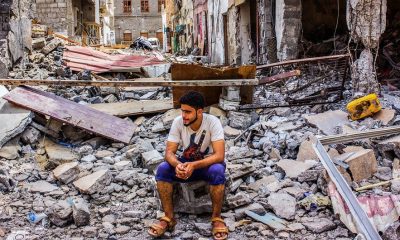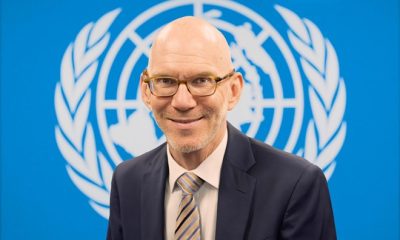Editor's Pick
Kamala Harris Gains Momentum as Biden Withdraws from 2024 Presidential Race

A Surge of Democratic Support Elevates Harris to the Forefront of the Battle Against Trump
In a move that has sent shockwaves through the political landscape, President Joe Biden has announced his withdrawal from the 2024 reelection campaign, endorsing Vice President Kamala Harris to take his place against former President Donald Trump. This decision, made public via social media, instantly propelled Harris into the forefront of the Democratic Party’s efforts to retain the White House.
Biden, who has been grappling with declining poll numbers and health issues, chose to bow out while recuperating from a third bout with COVID-19 at his Rehoboth Beach vacation home. His endorsement of Harris marks a historic moment, as she could become the first Black woman and South Asian major party presidential nominee in U.S. history.
Harris, swiftly capitalizing on Biden’s support, declared her candidacy, promising to unite the Democratic Party and the nation to defeat Trump. “Together, we will fight. And together, we will win,” she asserted. Her statement echoed through a wave of endorsements from Democratic lawmakers, governors, and financial donors, signaling a unified front behind her campaign.
ActBlue, the leading Democratic fundraising platform, reported a staggering $46.7 million in small-dollar donations for Harris within hours of Biden’s announcement. This surge stands in stark contrast to the waning support Biden had been experiencing, especially after his lackluster performance in a late June debate against Trump.
Biden’s exit was met with a mix of commendations and controversy. Democratic officials praised his decision as a selfless act of service. “Biden is doing what he has done throughout his life of service: putting the American people and our country above everything else,” Harris noted. However, Trump wasted no time in attacking both Biden and Harris, declaring Biden unfit for office and asserting that Harris would be easier to defeat.
The Republican response was predictably aggressive. House Speaker Mike Johnson called for Biden’s immediate resignation, arguing that if Biden is unfit for another term, he is unfit to serve out his current one. Such a move would thrust Harris into the presidency, setting a dramatic stage for the November election.
As the Democratic Party rallies behind Harris, other potential contenders have emerged, including Governors Gretchen Whitmer of Michigan, Josh Shapiro of Pennsylvania, J.B. Pritzker of Illinois, and Gavin Newsom of California. Despite this, early endorsements from influential figures like former Presidents Bill Clinton and Hillary Clinton, and a surge in donations suggest Harris is the frontrunner.
The upcoming Democratic National Convention in Chicago presents a pivotal moment for the party. Delegates could either solidify Harris’s candidacy through a virtual vote or opt for an “open” convention, reminiscent of the tumultuous 1968 Democratic Convention. This scenario could introduce multiple candidates into the fray, potentially fracturing party unity at a crucial time.
As the nation watches this political drama unfold, Harris’s campaign gears up for an intense 107-day sprint to Election Day. Biden, whose term ends in January, has pledged to fulfill his presidential duties while supporting Harris’s bid. The White House has indicated that Biden will address the nation later this week to elaborate on his decision and the future of the Democratic Party.
In a race fraught with high stakes and historical significance, Kamala Harris stands at a crossroads, backed by a wave of support and facing the formidable challenge of uniting her party and the nation against a determined Trump. The path ahead is uncertain, but one thing is clear: the 2024 election is shaping up to be one of the most consequential in American history.
Editor's Pick
Trump Locks In $2B Drone Deal With Qatar, Signaling a New Power Shift in the Middle East

First-of-its-kind drone sale to Doha bolsters U.S. military ties with Qatar and reshapes Gulf defense dynamics.
This isn’t just a weapons sale—it’s a strategic realignment. President Donald Trump’s approval of an unprecedented $1.96 billion arms deal with Qatar isn’t about just eight MQ-9B drones. It’s about staking out a new American red line in the Middle East. And it’s about power—airborne, unmanned, and armed to the teeth.
Qatar, long the shadowy broker in conflicts from Gaza to Kabul, is now becoming a front-row actor. With this deal, Trump is transforming Doha from a diplomatic fixer to a drone-powered sentinel capable of conducting advanced surveillance, target acquisition, and strike operations. The sale signals the first time such high-end American drones are making their way to any country in the region—a slap in the face to traditional allies like Saudi Arabia and the UAE who’ve been denied access.
At the heart of this is Al Udeid Air Base, America’s largest military base in the Middle East, which Qatar has pumped over $8 billion into since 2003. Trump knows leverage when he sees it. While some in Washington grumble about Qatar’s cozy ties to Hamas and Tehran, Trump sees utility. He doesn’t need moral purity—he needs strategic partners.
This drone deal is a down payment on that partnership. With Hellfire missiles, radar-jamming gear, and top-tier ISR tech, Qatar just became more than a gas-rich Gulf state. It’s now an elite drone hub that can pressure Iran, monitor the Houthis, and shape conflicts from Yemen to the Strait of Hormuz.
Critics will say it empowers a country that shelters Hamas leadership. Supporters will argue it gives the U.S. another heavily armed friend who can do the dirty work. Either way, this deal turns Qatar into a decisive power broker—and proves once again that Trump plays chess, while others are still learning checkers.
Editor's Pick
Eid Mubarak 2025: Global Celebrations Kick Off with Diverse Greetings Worldwide

Join the global celebration by learning how to wish a blessed Eid in different languages:
With the sighting of the new moon confirmed in Saudi Arabia and neighboring regions, Eid al-Fitr celebrations officially begin on Sunday, March 30, marking the end of the holy month of Ramadan.
Eid al-Fitr, known as the “festival of breaking the fast,” is celebrated joyously by nearly 1.9 billion Muslims globally, accounting for about 25 percent of the world’s population. Countries such as Indonesia, Pakistan, India, Bangladesh, and Nigeria, home to some of the largest Muslim communities, are set to embrace this festive occasion with diverse customs and vibrant celebrations.
Traditionally, the Eid celebration lasts for three days in most Muslim-majority nations, with activities beginning just after dawn prayers and sermons. Families and friends gather to share meals, exchange sweets, and extend heartfelt greetings as they move from home to home.
The most widespread greetings are “Eid Mubarak” (Blessed Eid) and “Eid Sa’id” (Happy Eid), but variations exist worldwide, reflecting the rich linguistic diversity among Muslim communities.
Join the global celebration by learning how to wish a blessed Eid in different languages:
- Arabic: Eid Mubarak (عيد مبارك)
- Indonesian: Selamat Idul Fitri
- Urdu (Pakistan): عید مبارک (Eid Mubarak)
- Hindi (India): ईद मुबारक (Eid Mubarak)
- Bengali (Bangladesh): ঈদ মোবারক (Eid Mubarak)
- Hausa (Nigeria): Barka da Sallah
- Turkish: Bayramınız mübarek olsun
- Persian (Iran): عید مبارک (Eid Mubarak)
- Malay (Malaysia): Selamat Hari Raya Aidilfitri
- Somali: Ciid Wanaagsan
- Swahili (East Africa): Eid Njema
- French: Bonne fête de l’Aïd
- English: Eid Mubarak
Wishing everyone worldwide peace, joy, and prosperity this Eid. Eid Mubarak from waryatv.com!
Editor's Pick
J. Peter Pham: Somalia’s President Insults Trump by Offering Ports He Doesn’t Control
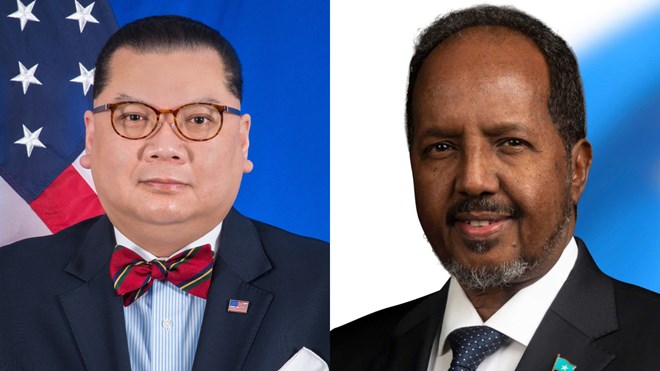
Ambassador J. Peter Pham, a prominent former US envoy to Africa and influential figure in President Trump’s circle, has openly mocked Somalia’s President Hassan Sheikh Mohamud, calling his recent offer of Somaliland’s strategic ports to the US an outright insult and an act of utter foolishness.
Pham sharply criticized the Somali leader’s desperate bid, declaring on social media platform X, “Hassan Sheikh Mohamud thinks the Americans are fools, offering ports in Somaliland and Puntland—ports he has absolutely no control over.” Highlighting the absurdity of Mogadishu’s move, Pham underlined that the US provides Somalia with nearly $1 billion annually, money he described as being shamefully wasted.
According to Semafor newspaper, President Mohamud wrote directly to Trump, attempting to barter control over the strategic Berbera and Bosaso ports in return for Washington halting its recognition of Somaliland. However, these ports are firmly under Somaliland’s and Puntland’s jurisdiction, beyond Mogadishu’s reach—a fact the Somali president astonishingly disregarded.
Pham, a staunch advocate of Somaliland’s recognition, portrays this latest diplomatic blunder as proof of Mogadishu’s desperation, incompetence, and disregard for American intelligence. The move has sparked fury and disbelief within American political circles, particularly among Republicans actively campaigning for Somaliland’s recognition over the past two years.
Pham’s strong condemnation reinforces that Somaliland’s recognition campaign has significant momentum in the US, leaving Somalia’s desperate diplomatic tactics increasingly isolated. With influential figures like Pham openly ridiculing Hassan Sheikh’s miscalculations, it becomes clearer that Somaliland stands poised for a historic diplomatic breakthrough, while Somalia flounders amid strategic missteps and political humiliation.
Waryatv.com readers should take note: Somalia’s diplomatic folly has inadvertently boosted Somaliland’s credibility on the global stage, marking a turning point that could reshape the Horn of Africa’s future.
Commentary
Algeria Jails French-Algerian Writer Boualem Sansal, Igniting New Tensions with France

Boualem Sansal sentenced to five years under anti-terrorism laws after questioning Algeria-Morocco borders, drawing fierce criticism from France.
Renowned French-Algerian writer Boualem Sansal has been sentenced to five years in prison by an Algerian court under contentious “anti-terrorism” laws, further inflaming diplomatic tensions between Algeria and France. Sansal, an outspoken critic of the Algerian government, was charged with “undermining national unity” after remarks he made questioning colonial-era border divisions with regional rival Morocco.
The verdict, delivered on Thursday in Dar El Beida near Algiers, stemmed from an interview Sansal gave to French far-right outlet Frontieres last October. Sansal argued that France had unfairly redrawn Algeria’s borders during colonial times, incorporating Moroccan territory—remarks seen as incendiary by Algerian authorities.
French President Emmanuel Macron swiftly condemned the decision, publicly appealing to Algeria’s sense of “good sense and humanity,” citing Sansal’s reported battle with cancer. The imprisonment of the celebrated author, winner of the 2011 Peace Prize of the German Book Trade, has added fuel to already strained Franco-Algerian relations, following France’s recent diplomatic shift to support Morocco’s sovereignty over Western Sahara.
Sansal, who represented himself in court, denied that his comments violated Algerian law or intended harm to national unity. Legal experts suggest his sentence, half of what prosecutors initially sought, still reflects severe judicial overreach and may serve as political leverage amid Algeria’s diplomatic feud with France.
Human rights advocates warn that Algeria continues to misuse stringent anti-terrorism laws to silence critical voices, raising fears over the broader implications for freedom of speech. As international pressure mounts, speculation grows that Algerian President Abdelmadjid Tebboune could grant Sansal a presidential pardon during an upcoming national holiday, attempting to defuse escalating tensions with Paris.
Editor's Pick
Captive German Nurse Makes Desperate Plea After 7-Year Somalia Ordeal

Sonja Nientiet urges swift German government intervention, warning her health is critically deteriorating after seven years in captivity.
In a new video released after seven agonizing years of captivity in Somalia, German nurse Sonja Nientiet has urgently pleaded for the German government to intensify efforts to secure her immediate release. Nientiet, who was abducted in Mogadishu in 2018 while working for the International Committee of the Red Cross (ICRC), expressed dire concerns about her rapidly deteriorating health.
“My health is deteriorating,” Nientiet says emotionally in the video, posted by an individual named Liibaan Osman. She urgently warns that “every day that passes makes the situation more critical,” emphasizing that her prolonged captivity could soon claim her life.
Nientiet was kidnapped on May 2, 2018, after armed assailants—allegedly with inside help from a disgruntled security guard—stormed the ICRC office in Mogadishu. Despite intensive German intelligence efforts to track down her location and captors, who have demanded millions of dollars in ransom, the nurse remains captive and vulnerable.
The release of this disturbing footage has intensified pressure on the German government to secure Nientiet’s freedom. Yet, authorities have publicly maintained their longstanding policy of silence on hostage negotiations, declining direct comment.
Before her abduction, Nientiet had provided humanitarian assistance in Syria and the Democratic Republic of Congo, highlighting her commitment to aid in conflict zones. The ICRC expressed renewed urgency following the video, stating deep concern for her safety and health.
With her desperate plea now public, the stakes for Germany have dramatically increased, shifting the crisis into an urgent test of diplomatic resolve—one where each passing day could tragically mark the difference between life and death.
Editor's Pick
WATCH: Somali, Ethiopian Migrants Escape from Alleged Captivity in Johannesburg

Johannesburg suburb becomes epicenter of migrant abuse as over 50 Somali and Ethiopian nationals escape horrifying detention.
More than 50 migrants—primarily teenagers and young adults from Somalia and Ethiopia—broke free from an alleged detention house in Lombardy East on Wednesday morning, fleeing into the streets amid cries for help, partially clothed, and clutching scraps of food.
South African Police responded after neighbors and community patrols reported the disturbing sight: migrants screaming and shattering windows to escape a house described by witnesses as “filthy and unlivable.” Inside, reporters found makeshift bedding, buckets used as toilets, and evidence of appalling living conditions—raising immediate suspicion of human trafficking or forced labour, although police currently label it a potential violation of the Immigration Act.
Adise Chuafmaa Jarse, a translator for the Ethiopian community, painted a horrifying picture: migrants beaten, starved, and stripped of dignity under false promises of employment. “No food and no clothes,” she recounted. “Sometimes people die—they must throw away.”
Police spokesperson Colonel Kaha said statements are still being collected from the 32 to 34 migrants currently in custody, including children as young as 13, but authorities have yet to confirm arrests. This troubling incident closely mirrors a similar January case in Lombardy East, highlighting an alarming trend that suggests the Johannesburg suburb is fast becoming a hub for migrant exploitation networks.
As investigations intensify, this latest escape underscores a darker reality: migrant exploitation and potential human trafficking in South Africa remains rampant, deeply rooted, and urgently in need of confrontation.
Editor's Pick
Kenya Breaks Silence, Recognizes Kosovo as Independent State
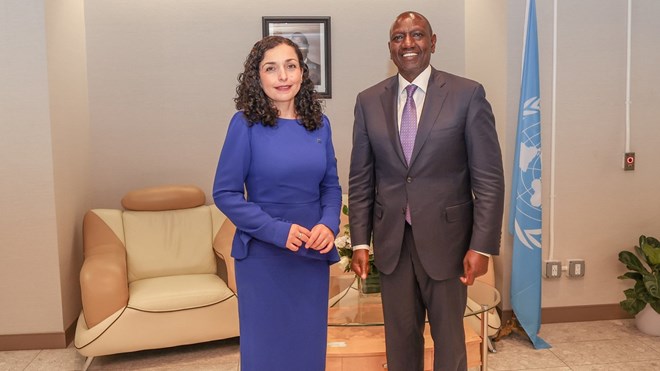
Kenya becomes the first nation in nearly five years to recognize Kosovo’s independence, challenging Serbia-backed diplomatic blockade.
Kenya has officially recognized Kosovo as an independent state, becoming the first country to do so in nearly five years. The historic announcement, confirmed by Kosovo’s former president Behgjet Pacolli, follows intensive lobbying efforts and represents a crucial breakthrough amid longstanding international tensions.
Kosovo declared independence from Serbia in 2008, quickly gaining recognition from over 110 countries, including the United States and most European nations. Yet its path to full international acceptance has been repeatedly blocked by Serbia and powerful allies such as Russia and China, who have used their veto power at the United Nations to prevent Kosovo’s membership.
Kenya’s decision, formalized by President William Ruto, breaks a diplomatic stalemate that has persisted since Israel’s recognition of Kosovo in September 2020. Pacolli, who personally shared the historic moment, described a tireless, decade-long campaign of “door-to-door” diplomacy aimed at ensuring Kosovo’s sovereignty and international legitimacy.
This new recognition signals not just a symbolic victory for Kosovo, but also a potential shift in the geopolitical landscape, challenging Serbia’s continued refusal to acknowledge Kosovo’s independence. For Kosovo, Kenya’s endorsement is more than just diplomatic—it reinforces the legitimacy of its quest for global recognition.
Kenya’s bold step forward may now encourage other nations to follow suit, potentially reigniting a wave of diplomatic recognitions after years of stagnation. Kosovo, strengthened by Kenya’s recognition, now stands poised to renew its campaign for greater international acceptance—a critical development at a time when global alignments are rapidly evolving.
In breaking five years of silence, Kenya sends a powerful message: Kosovo’s sovereignty can no longer be ignored.


Editor's Pick
Somalia’s Shame: National Fury After 8-Year-Old Forced into Marriage
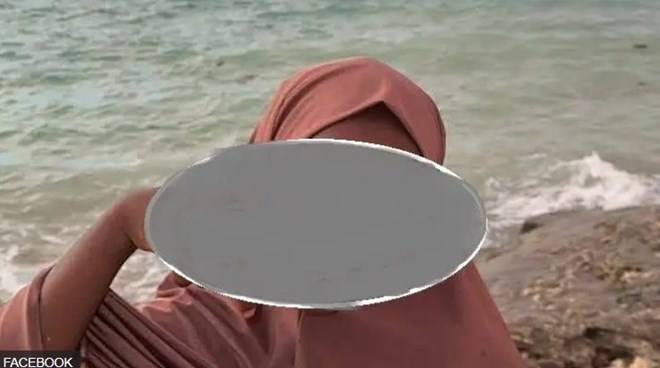
Outrage sweeps Somalia after an 8-year-old girl, abducted and married off, is rescued by Puntland authorities, sparking fierce debate on child marriage and legal reform.
Somalia is reeling in shock and anger after the harrowing discovery of an 8-year-old girl, missing for six months, found married to a significantly older man who defiantly claims religious legitimacy. The case, originating from Puntland’s commercial hub, Bosaso, has unleashed nationwide condemnation, exposing deep flaws in Somalia’s fragmented legal system and fueling demands for decisive action against child exploitation.
The girl vanished in September 2023, reportedly taken by a female relative under the pretense of visiting another family member. Months of desperate searching yielded nothing until a chilling video emerged online in March, showing the child reciting Qur’anic verses. Her family soon identified her in the footage, living in the town of Armo with a man identified only as Sheikh Mahamoud, who unabashedly insists the child was his wife, citing contested interpretations of Islamic jurisprudence.
“I will not renounce the marriage,” Mahamoud provocatively declared, invoking religious tradition to defend an act widely condemned as pedophilia and abuse. His defiance highlights Somalia’s crisis: a clash between constitutional laws—which define childhood as under 18—and customary practices or religious interpretations that allow grave human rights violations to persist unchecked.
The rescue was dramatic. Puntland police were forced to breach the accused’s barricaded home in Carmo after failed mediation attempts. The child, now safely in protective custody, remains traumatized, while authorities investigate Mahamoud, who outrageously claims he was misled about her age.
The case isn’t isolated; human rights officials warn similar tragedies occur routinely, hidden behind a veil of religious or cultural justification. It underscores the urgency of passing the long-stalled child protection bill, which has been paralyzed by religious objections. Critics argue Somalia must now confront these exploitative traditions head-on, enforcing child protection laws unequivocally.
Across social media, Somalis fiercely debate the incident, with most condemning it as an obscene abuse cloaked falsely in religion. Activists now demand concrete action—new legislation, tougher enforcement, and a clear moral stance—to protect Somalia’s children from systemic abuse masked by tradition.
Unless Somalia acts decisively, cases like these will remain hauntingly commonplace. For many, this case is a grim wake-up call: Protect children now—or forever bear the stain of complicity.
-

 Analysis3 weeks ago
Analysis3 weeks agoSaudi Arabia’s Billion-Dollar Bid for Eritrea’s Assab Port
-

 Somaliland2 months ago
Somaliland2 months agoSomaliland and UAE Elevate Ties to Comprehensive Strategic Partnership
-

 Africa12 months ago
Africa12 months agoHow Somaliland Could Lead the Global Camel Milk Industry
-

 ASSESSMENTS2 hours ago
ASSESSMENTS2 hours agoOperation Geel Exposes the Truth: International Community’s Reluctance to Embrace Somaliland as a Strategic Ally
-

 Analysis12 months ago
Analysis12 months agoIran escalates conflict, attacking Israel; US forces help Israel to intercept Iranian projectiles
-

 Top stories10 months ago
Top stories10 months agoGunmen Kill 11 in Southeastern Nigeria Attack, Army Reports
-

 Analysis12 months ago
Analysis12 months agoIsrael and Iran on Edge: Tensions Escalate Amidst Rising Threats
-

 TECH10 months ago
TECH10 months agoZimbabwe Approves Licensing of Musk’s Starlink Internet Service











